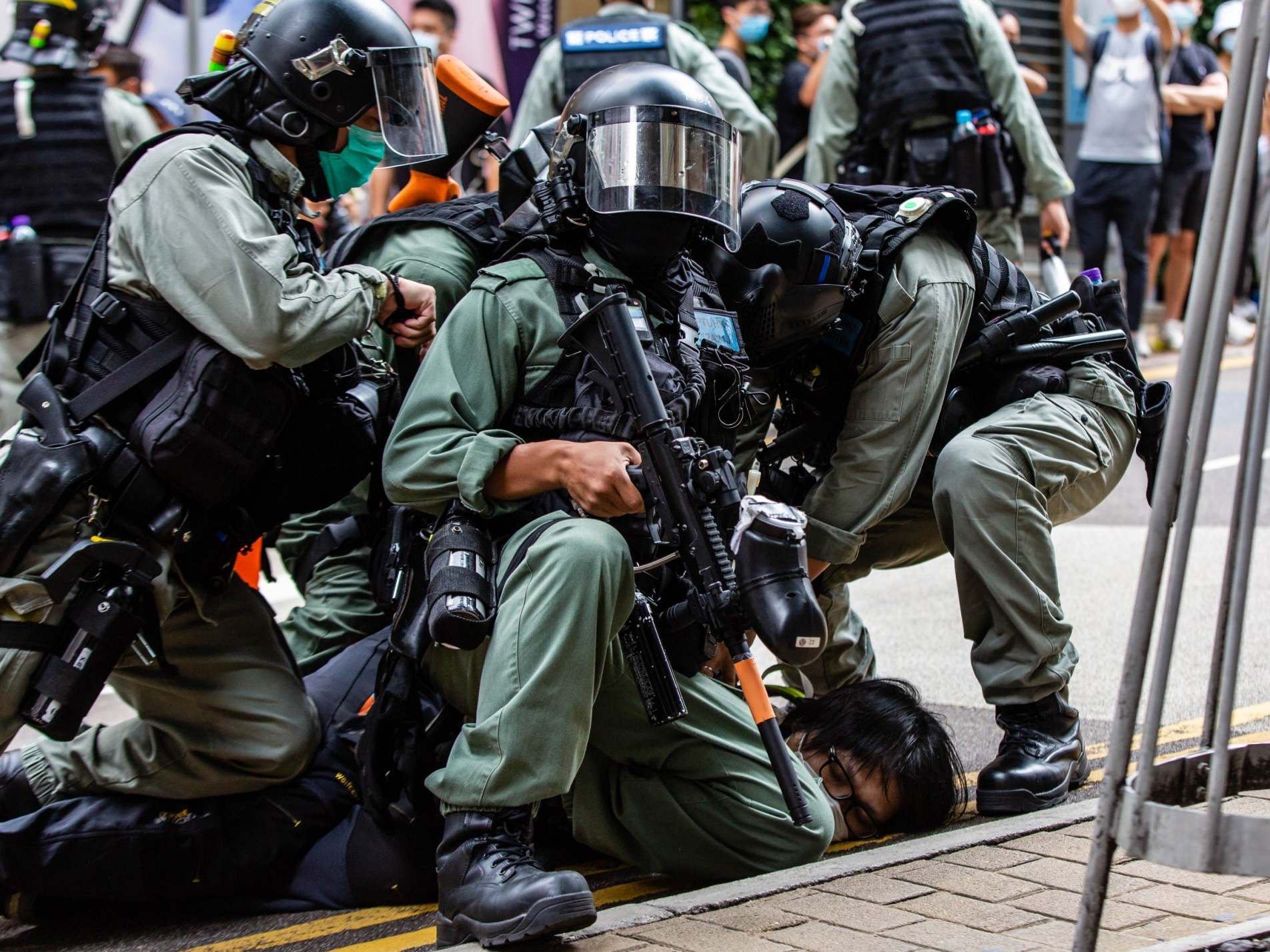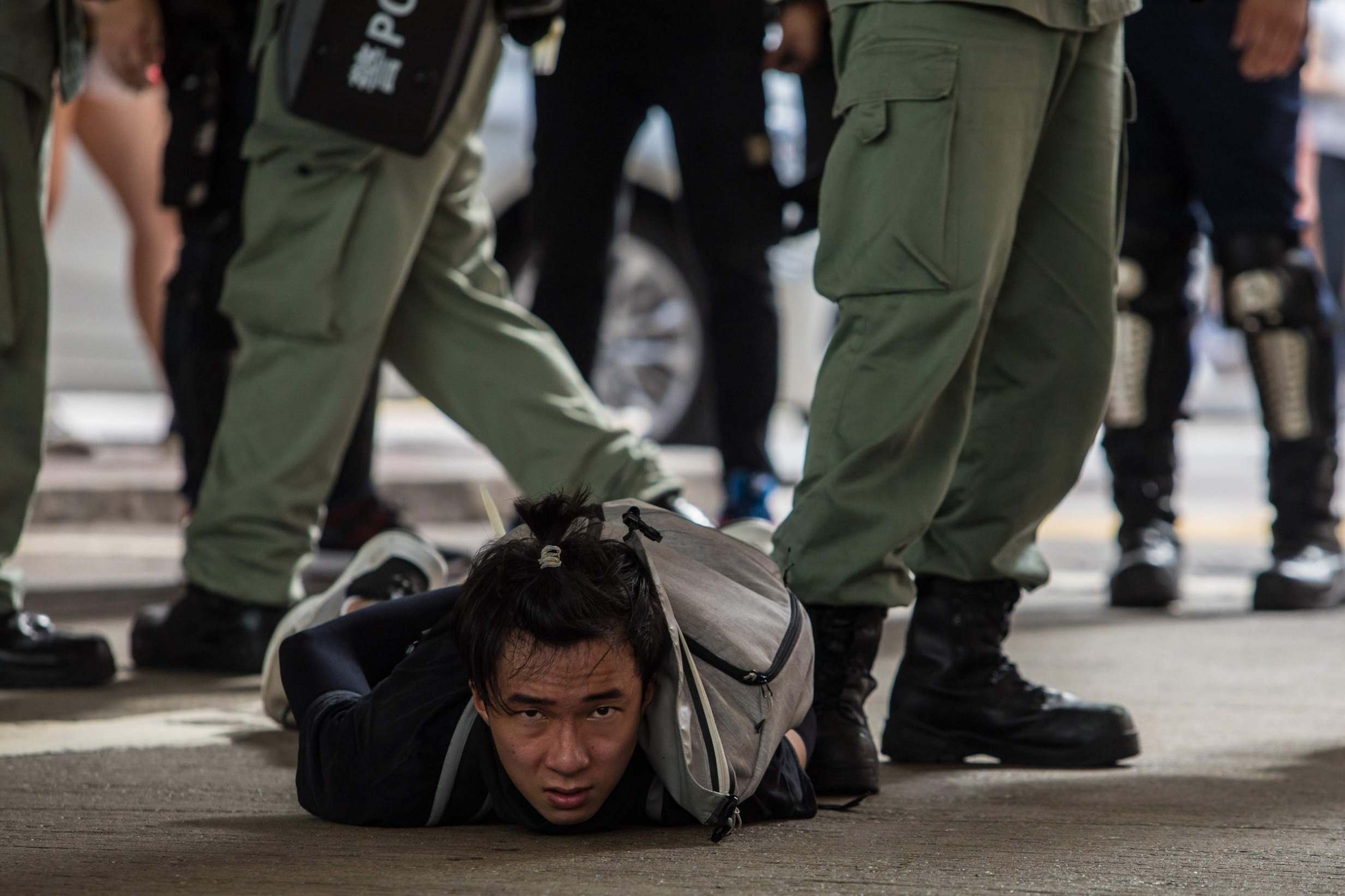Can Britain afford to stand up to China over Hong Kong?
Analysis: As Beijing integrates more into a UK set to be weakened by Brexit, taking action over the Hong Kong protests may not even be possible, writes Kim Sengupta


A crackdown was long expected, but the draconian scale and proposed reach of it still shocked the international community and left the people of Hong Kong facing a bleak future of uncertainty and foreboding.
The new security laws, drafted almost totally in secret, were made public only after being enacted late on Tuesday night, just hours before the 23rd anniversary of the handover of Hong Kong from Britain to China. They are likely to change life in a free, vibrant society which had existed next to an increasingly repressive China under what increasingly seemed like borrowed time.
The main charges under the legislation – secession, subversion, terrorism and collusion with foreign forces – are sweeping in scope and each carry a sentence of life imprisonment. In addition, there are requirements for “national security education” in schools and colleges, the media and the internet field.
The law applies to both residents and non-residents in Hong Kong as well as permanent residents abroad. But it does not stop there. Extraordinarily it aims to apply to anyone regardless of their nationality or where the alleged offence takes place. Article 38 states “this law shall apply to offences ... committed against the Hong Kong Special Administrative Region from outside the region by a person who is not a permanent resident of the region.” As Donald Clarke, of the George Washington University Law School, wrote: “I know of no reason not to think it means what it appears to say: it is asserting extraterritorial jurisdiction over every person on the planet.”
From now on, the National Security Office, a branch of China’s security service, will operate in Hong Kong with its agents immune from the city’s local laws. All government departments are required to cooperate and “necessary measures” will be applied to foreign organisations such as the media and human rights groups to ensure that they comply with new rules.
A new police force will have the power to stop residents from travelling abroad, search homes and electronic devices and intercept communications without a warrant, as long as there is authorisation from Hong Kong’s chief executive, and demand service providers and foreign organisations hand over information.
Lobbying for sanctions against Chinese officials, such as the ones recently brought in by the US administration, would be an offence. Support for the people of Hong Kong against China’s takeover could be construed as “seriously disrupting the formulation and implementation of laws or policies” or “provoking by unlawful means hatred among Hong Kong residents towards the Central People’s Government". Non-permanent residents can be expelled from the city, regardless of whether they are convicted, if suspected of contravening the law.
What this new reality means has been illustrated with the arrest of almost 400 people as the police broke up protests with water cannons, tear gas and pepper spray. Among those detained was a man holding a Hong Kong independence flag and a woman holding a British one, others were taken away for possessing pro-independence literature.

Boris Johnson denounced the imposition of the law as a “clear and serious” violation of China’s treaty with Britain. He said it was a violation of Hong Kong’s autonomy and in direct conflict with the territory’s Basic Law, its constitution.
The UK will offer nearly 3 million Hong Kong residents the chance to settle in the UK and ultimately apply for citizenship, About 350,000 UK passport holders, and 2.6 million others eligible, will be able to come to the UK for five years. After a further year, they will be able to apply for citizenship.
But the UK is limited on how much it can do by itself in standing up to China and it may not even be possible, economically, to do so. Successive British governments have courted Beijing for trade, a need made much more acute by Brexit, going down paths many other countries have rejected.
Most western European states have resisted joining China’s “belt and road’ scheme, which has been used, say critics, to spread economic and political hegemony in parts of Asia and Africa. But the UK has agreed to join the controversial initiative, with David Cameron leading a $1bn private fund, supported by the British government. Boris Johnson’s government has allowed the Chinese telecommunications firm Huawei into the UK’s 5G network against the wishes of allies, including the US.
There has been talk of late of forming a “democratic alliance” against China. But Beijing, facing international condemnation over its role in the coronavirus pandemic, appears to be set on a defiant, belligerent path, as shown first by its recent border clashes with India and confrontations at sea with southeast Asian neighbouring countries, and now in Hong Kong. Relations between China and a number of states are likely to remain fraught for a long while to come.
Join our commenting forum
Join thought-provoking conversations, follow other Independent readers and see their replies
Comments